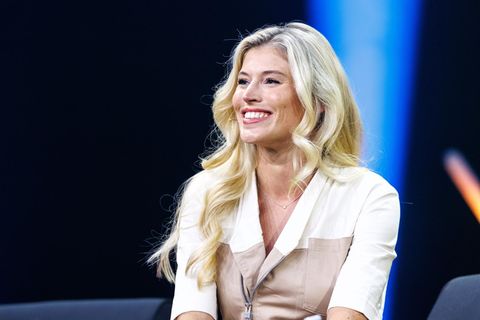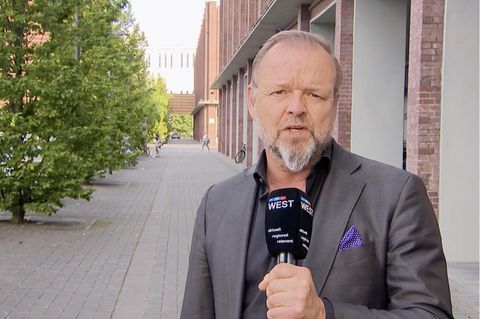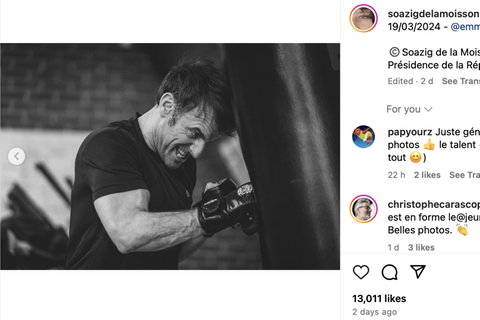Mariana is skipping rope, standing in the middle of a thin wire stretched high off the ground. Nearby, Enrico climbs a wooden staircase, over and over again?on his hands. Behind him, Benjamin juggles a dozen plastic rings. Saturday night at one of Berlin?s famed cabarets? No, it?s a weekday morning at one of the city?s public high schools, and the teacher is standing by. Welcome to Schule für Artistik, or School for the Circus Arts, where being called the class clown is a compliment, and where turning somersaults during school is not just encouraged, but required.
True, students of this school finish their studies with a normal diploma. But alongside math, science, and literature, they might study trapeze-swinging. Or juggling on a unicycle. Or upside-down gymnastics. Founded in 1956 in what was then East Germany, Schule für Artistik is Germany?s only certified circus high school. »It?s a broad education,« says Gerd Krija, the school?s director, who himself studied here. The 40 or so students divide the week between training and regular classes. As long as they do both, the school is entirely free.
And the students? For Mariana Hein, a petite 18-year-old with long dark hair and an olive complexion, there was never any question. Like her juggling brother and their acrobat cousin, the circus is in her blood. Her father is a tightrope walker, her mother a trapeze artist. Her grandparents, and even her great-grandparents, were circus people. When she was seven, her father?s tightrope partner got sick and he asked Mariana to stand in. »I tried it,« she recalls, »and I said, ?I want to do that!?« Mariana walks across the highwire at school like she?s skipping through a park on a nice day. Even when she starts to fall, she manages to jump off and, like a cat, land on her feet. »It?s hard,« she admits later.
»It?s a different feeling from when you walk on the ground.« But she says she can?t resist being in front of an audience, and from the slight swagger in her walk and her relaxed smile when she?s on the wire, you believe her. Mona Pête?s parents, on the other hand, were rather surprised when she announced one day that she wanted to join the circus. Since then, though, they have begun to get used to the idea, says Mona, 19, who specializes in foot juggling. She is naturally athletic, and, she says, »I wanted to do something with my body.« First she thought she would become a gym teacher. But after performing in a children?s circus, she knew that was what she wanted to do.
She came to the Berlin school from Switzerland, where she is from, planning to do the Tuch?an acrobatic act in which the performer climbs up and down a giant curtain-like fabric hanging from the ceiling. After a year, however, her teachers told her she was too small and should do foot juggling instead. At first she hated the idea, but now she, too, is convinced: Good balance keeps her on the chair, strong legs keep the ball spinning, and lot of skill keeps it from falling off her feet and landing on her head or in the audience. »I like to work with myself,« says Mona, whose short hair flips around as she stretches, »and to have control.«
According to Gerd Krija, the director, any agile kid has a good chance at getting into the school. All beginners really need, he says, »is a good sense of their body and an ability to do something like a few handstands.« It is only after they are accepted into the program, he says, that the real juggling begins: a regular schedule of high-school courses, plus long hours of training in acrobatics, trapeze, tightrope, vaulting, and even ballet.
The wide range of disciplines allows students to try everything before deciding where their interests?and their talents?lie. Then, at the beginning of the second year, students begin to specialize, spending more hours in very focused technical classes. Their circus homework, of course, is a lot more fun (but harder, too) than algebra problems or book reports. To perfect a particular move or technique, a student must spend hours climbing, vaulting, back-flipping, or ring throwing outside of class.
»I train all day, then I go home, eat something, and train some more,«says Beatrice, an 18-year-old juggler at the school. Most of her classmates agree that their free time is largely taken up with circus-oriented activities. Asked about her outside interests, Mariana grins: »only artistic.« About half of them live in the dormitory, which means that they are around their circus school friends all the time.
But it?s not just an around-the-clock jungle gym. In order to stay in the school without paying tuition, students must also fulfill all of the normal requirements. For first-year circus students, this means: 22 hours a week of classes like math, biology, and German taught by normal high school teachers. For the second year, the workload is decreased to 12 hours a week, but technical training doubles to 24 hours a week. And while there is no minimum GPA, a bad grade will be tolerated in only one of all their classes.
It?s just before noon at Schule für Artistik, and the atmosphere is tense with anticipation. Mariana, Mona, and their classmates are dressed up in sequins and fancy face make up. The teachers are sitting in a row, like a panel of judges. Video cameras are set up to record the event. And a sizable audience of friends, parents, and alumni, have gathered.
The occasion? It?s the Zwischen- Prüfungen, a twice-yearly school exam that doubles as a live show. Each student is required to perform his or her circus speciality in front of the entire school. For the first and second-year students, it is a chance to get a feel for being under the stage lights. For the older ones, it?s also an all-important opportunity to show their stuff in front of real professionals: recruiters from circuses often come to watch.
Dealing with the pressure on days like this is no easy task, and Krija says about one in three don?t make it through the first two years. But, he adds, it is vital part of the school?s role to help determine which students are cut out for coveted positions in professional shows. Like many of the teachers at the school, Krija frets that it is increasingly hard to find jobs in the circus business, and that students need to be prepared for the challenges that lie ahead.
Under the old East German goverment, the Schule für Artistik was a feeder for the Staatszirkus, a state-run circus company. Good students were more or less guaranteed a job in one of its shows, which then served as a training ground for other circuses. »For young people to be able to go directly into a job, that was practically ideal,« says Krija. Now, graduates must find a job on their own. Mariana is one of the lucky ones. When she graduates next year, she will go home to western Germany to spend a year working with her father. After that, she hopes to move on to Norway where, she says, she will join her boyfriend?s circus. Her brother and their cousin will also work with her father for awhile before joining a show together in western Germany.
Krija says that there are enough small circuses and variety shows that anybody who wants it?and who is not too picky?will find work. Not everyone is so confident. Christoph Göbet, 25, has worked in variety shows around Europe since he graduated four years ago. But he has also had to resort to office work and waiting tables between jobs. »The market is super-full,« he says. »Everybody does more or less the same things, they have the same tricks. You have to be good. And lucky.«
But those realities are precisely why the Schule für Artistik is so important. It gives them a taste of a career that requires incredible dedication?and where the biggest reward is not money, or even personal fame, but rather the knowledge that you are doing something extraordinary. »For this kind of school,« Krija says, »you need people who are a little bit different.«
Alisa Roth and Andreas Meichsner






